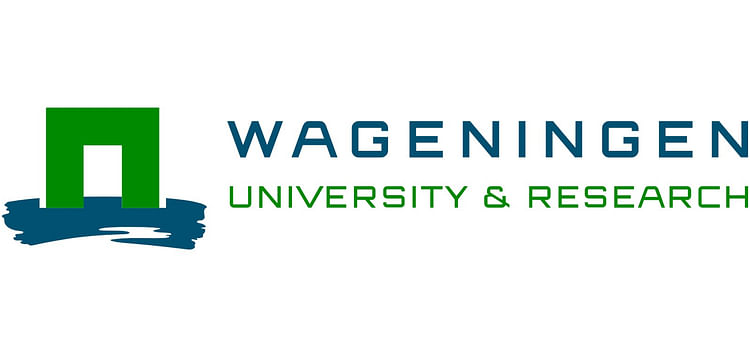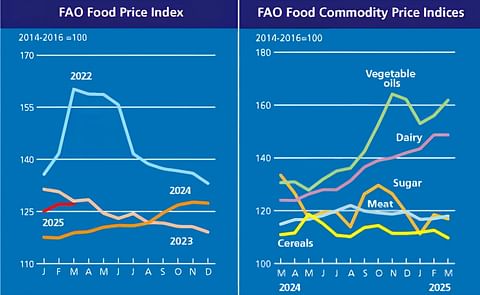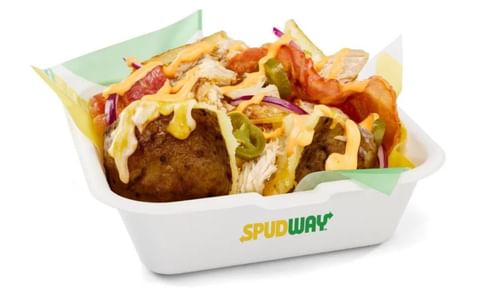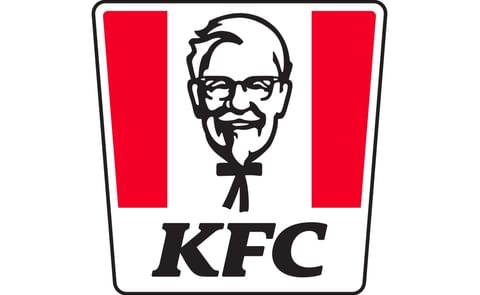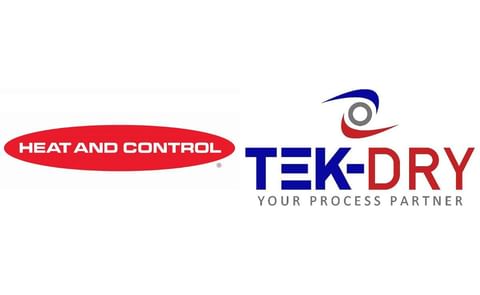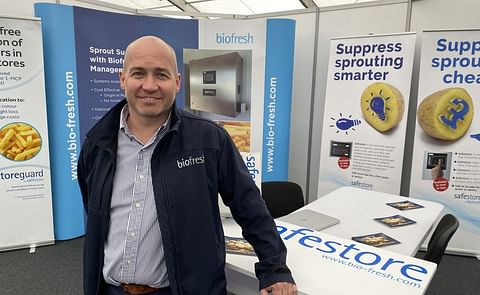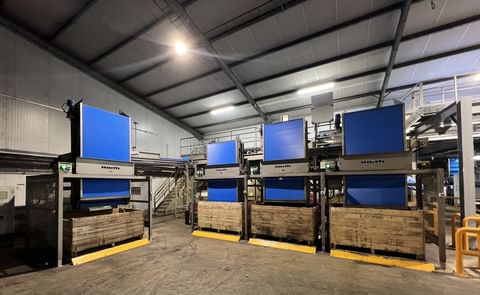WUR approach for effective sustainability programmes in the agri-food sector
WUR approach for effective sustainability programmes in the agri-food sector

Wageningen University & Research (WUR) has developed a five-step approach that could help food producing companies create effective sustainability programmes together with supplying farmers. The approach is aimed at transparency between all parties regarding the efforts required to achieve sustainability goals.
Sustainability from the beginning of the chain
Our current way of living and consuming is not sustainable. Everything needs to become more sustainable and food production and processing must play its part. This requires a chain approach from source to end consumer.
Companies that want to make their food products more sustainable soon find themselves going to the beginning of the chain: the farmer. To achieve ambitious goals, good cooperation with the farmer is needed, instead of top-down enforcement.
Experimenting with sustainability programmes is complex and time-consuming and thus requires a structured approach. WUR wants to contribute to a smoother path towards sustainable production and has therefore developed a 5-step approach based on practical experiences in developing sustainability programmes for the dairy industry over the past 10 years.
The approach is aimed at food producing companies who want to work with supplying farmers on sustainability goals and actual sustainability on their farms.
Sustainability as an integral part of business operations
It is important to create an integrated programme that is transparent, say the Wageningen researchers Alfons Beldman, Joan Reijs and Jelle Zijlstra. For example, it must be clear what sustainability means for the farmer's revenue model.
Exchanges between farmers and partners in the supply chain are important in order to clarify what the concrete benefits of increased sustainability will be for both the farm and the processor. Because ultimately, a sustainable revenue model for the farmer is also crucial for cooperation in the chain and thus for a positive business case for the purchasing company. In many cases, both parties need each other to achieve their goals.
It is crucial for food producers to see sustainability not as a separate business goal, but as part of their overall operations. Sustainability cannot be seen as a temporary project or goal and has implications for many other parts of a business’ operations.
Setting and advancing goals
The researchers advise food producers to follow five steps on the road to sustainability:
Joan Reijs:
The researchers argue that by constantly evaluating the five steps described above (step 5) and working transparently, real change can come about.
International harmonisation of methods
The researchers state that many companies are searching for sustainability. They recommend (international) cooperation and the adoption of existing experiences and practices.
It is important to avoid reinventing the wheel over and over again. In the dairy industry, for example, modes of operation are exchanged within the networks around the Dairy Sustainability Framework and within the Sustainable Agriculture Initiative Platform. The researchers indicate that they also partly regard organising this exchange as a public task, because accelerating sustainability is a public interest and companies’ competitive interests sometimes stand in the way of exchange.
Sustainability from the beginning of the chain
Our current way of living and consuming is not sustainable. Everything needs to become more sustainable and food production and processing must play its part. This requires a chain approach from source to end consumer.
Companies that want to make their food products more sustainable soon find themselves going to the beginning of the chain: the farmer. To achieve ambitious goals, good cooperation with the farmer is needed, instead of top-down enforcement.
Experimenting with sustainability programmes is complex and time-consuming and thus requires a structured approach. WUR wants to contribute to a smoother path towards sustainable production and has therefore developed a 5-step approach based on practical experiences in developing sustainability programmes for the dairy industry over the past 10 years.
The approach is aimed at food producing companies who want to work with supplying farmers on sustainability goals and actual sustainability on their farms.
Sustainability as an integral part of business operations
It is important to create an integrated programme that is transparent, say the Wageningen researchers Alfons Beldman, Joan Reijs and Jelle Zijlstra. For example, it must be clear what sustainability means for the farmer's revenue model.
Exchanges between farmers and partners in the supply chain are important in order to clarify what the concrete benefits of increased sustainability will be for both the farm and the processor. Because ultimately, a sustainable revenue model for the farmer is also crucial for cooperation in the chain and thus for a positive business case for the purchasing company. In many cases, both parties need each other to achieve their goals.
It is crucial for food producers to see sustainability not as a separate business goal, but as part of their overall operations. Sustainability cannot be seen as a temporary project or goal and has implications for many other parts of a business’ operations.
Setting and advancing goals
The researchers advise food producers to follow five steps on the road to sustainability:
- prioritise
- define goals
- now what adjustments are effective at the regional and farm level
- develop appropriate incentives for farmers
- evaluate
"The 3rd and 4th steps in particular often receive too little attention in practice. In step 3, the farmer’s possibilities for contribution to the sustainability goal on their farm must be examined regionally and per farm."Once a plan has been drawn up, the researchers advise the food producers to devise various ways of encouraging the farmer to actually start meeting the targets (step 4).
"You have to ask questions like: What are the options for farmers to make adjustments? What are the costs, benefits and possible side effects? What opportunities does the company itself offer and what opportunities are there in the immediate vicinity? How does this fit in with the farmer’s expertise? This knowledge is essential in order to achieve concrete and realistic goals."
Joan Reijs:
"Those incentives are needed to bring about change. What can processors do to specifically encourage farmers?"These incentives may consist of economic stimuli, knowledge exchange, facilitating adaptions, and ultimately also setting clear rules that contribute to the realisation of sustainability objectives. These incentives are summarised in the RESET approach (Rules - Education - Social Norm - Economy - Tools).
The researchers argue that by constantly evaluating the five steps described above (step 5) and working transparently, real change can come about.
International harmonisation of methods
The researchers state that many companies are searching for sustainability. They recommend (international) cooperation and the adoption of existing experiences and practices.
It is important to avoid reinventing the wheel over and over again. In the dairy industry, for example, modes of operation are exchanged within the networks around the Dairy Sustainability Framework and within the Sustainable Agriculture Initiative Platform. The researchers indicate that they also partly regard organising this exchange as a public task, because accelerating sustainability is a public interest and companies’ competitive interests sometimes stand in the way of exchange.
Like to receive news like this by email? Join and Subscribe!
NEW! Join Our BlueSky Channel for regular updates!
Highlighted Company
Sponsored Content
Sponsored Content
Sponsored Content
Sponsored Content
Sponsored Content

